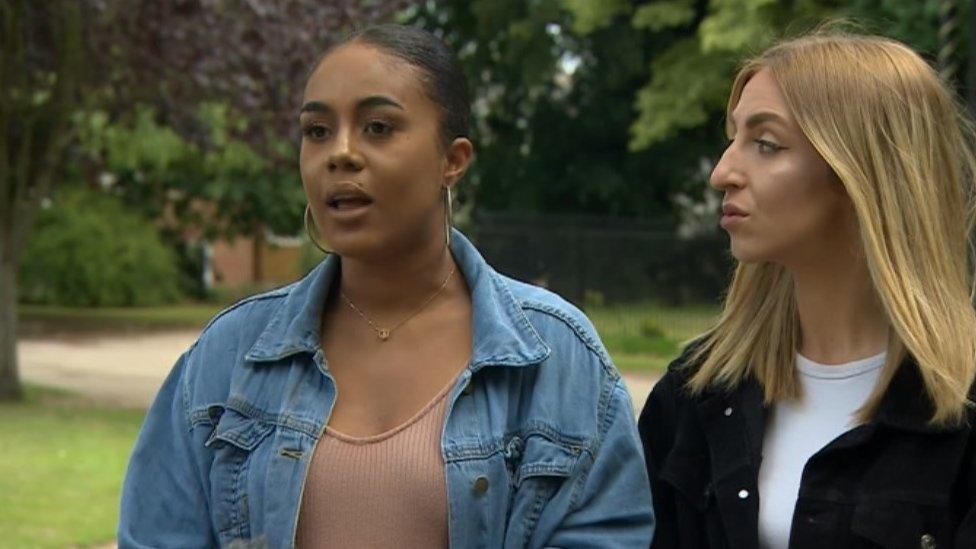Black Lives Matter protest organiser faces abuse over plan to honour minorities
- Published
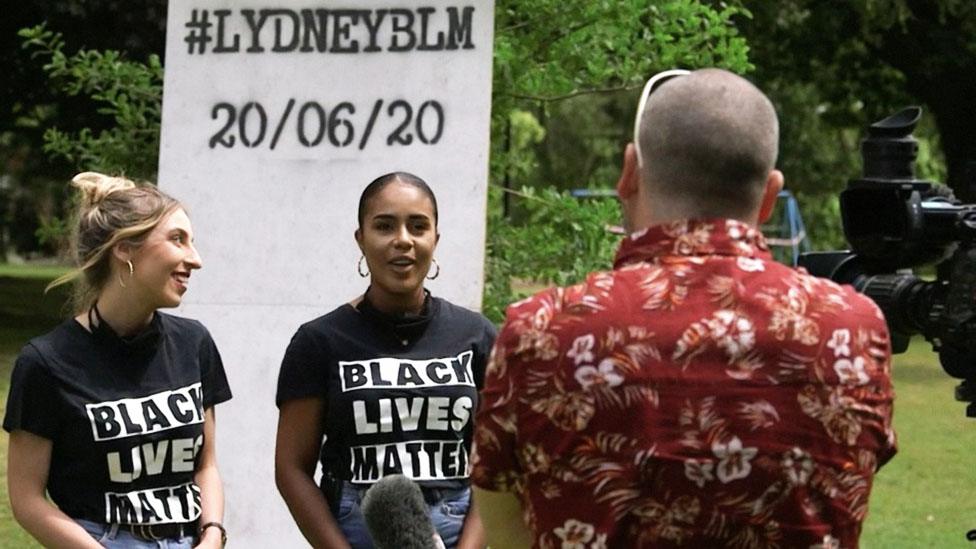
Khady and her friend Eleni Eldridge-Tull have set up the Local Equality Commission, which aims to support black and ethnic minority groups in rural areas.
A tribute involving Black Lives Matter protest organiser Khady Gueye is being erected in the Forest of Dean to mark her experiences as a black woman living in a mostly white part of the UK.
But she says abusive comments have been made about the plans by some people.
"It's those same derogatory conversations happening again," she tells Radio 1 Newsbeat.
Khady Gueye organised a protest this summer in the face of opposition from locals and authorities.
It was held during the nationwide coronavirus lockdown.
Now, the 24-year-old will have her story - a lived experience of racial inequality in the area - told as a work of art at a well-known Sculpture Trail.
"This sculpture piece is about exploring and celebrating black and ethnic minority people who live in these rural spaces, where they are in the minority population," she says.
"But actually this is our home and we deserve to have that space here."
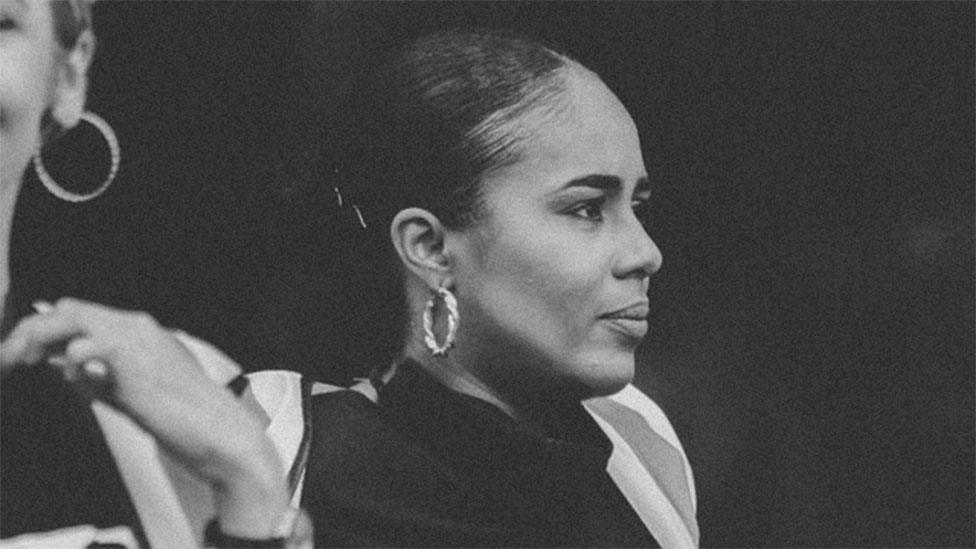
In a collaboration with the Forest of Dean Sculpture Trust, Khady has worked with Bristol-based poet Zakiya McKenzie, who created an "incredible poem" called Soil unsoiled based on conversations between the two.
"It talks about the ways in which black people need to claim their space in the Forest of Dean, and the experience of racism and racial injustice growing up in this area."
The poem will be put into physical form with the words inscribed into totem poles.
'Smash it up'
For Khady, "it's frustrating" that despite doing something "progressive and productive", there's not been a huge shift in mind-sets.
"Racial prejudice is still happening and it's rife."
Khady says she's seen examples of the prejudice in the response of some people after the sculpture was announced.
She's seen comments such as: "She's not from here", "somebody needs to shoot it, smash it up".
"Some of the comments we receive are more dangerous and violent than direct racial slurs because people feel that's more easily explained away."
"It's really disappointing. Something which was supposed to be positive and a metaphor for minority groups claiming back their space, has turned into something that has incited more hate and racially provocative comments."
She adds it's not about specific individuals, but that "the issue of race is divisive in our area".
Daughter as a driving force
As you can probably imagine, it's not easy for Khady being involved in something so intense.
"It comes at a personal cost and it's incredibly draining."
But she's motivated by creating a better world for children - like her own daughter.
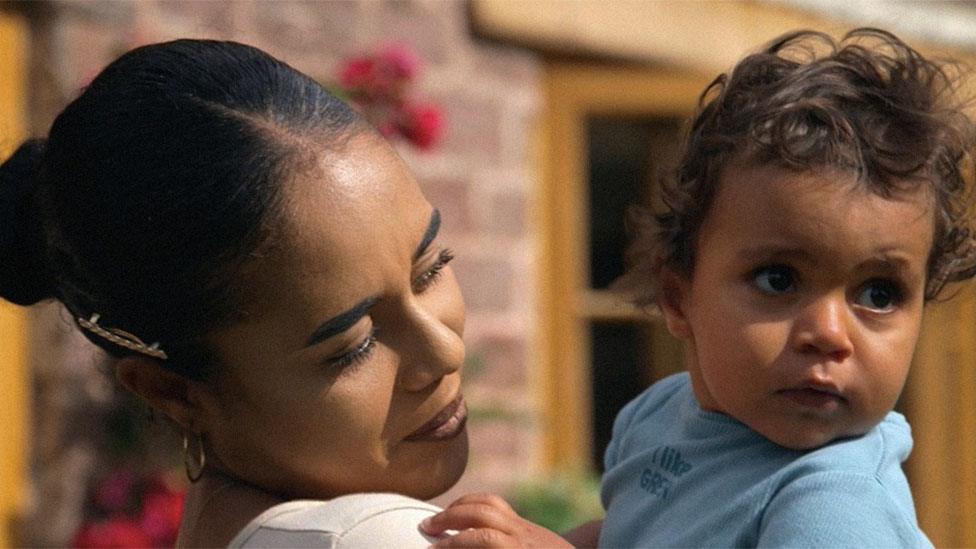
Khady doesn't want children like her own daughter to experience racial inequalities like she did
"As much as I sometimes struggle to continue doing this because it's so detrimental to mental health, I think you have to look at the bigger picture and understand that it's not a problem that's going away."
She feels it's important to set an example for the younger generation and give them "a platform to continue tackling racial injustice".
"We have to provide them with a safe space and a society where children don't experience racial injustice, slurs or hatred."
'We need to become more progressive'
Through her own lived experience, Khady says she was aware of racial injustice before the Black Lives Matter movement took off.
And since their protest, Khady and her friend Eleni Eldridge-Tull have set up the Local Equality Commission, which seeks to support black and ethnic minority groups in rural areas.
"But the work that we've done has highlighted to me, that this is a problem a lot more ingrained in these rural spaces than I ever realised."
She says the abuse received in the last 24 hours is a reminder of the work that needs to be done.
"We need to find a way in which we can become more progressive, because it doesn't feel as if we are making a huge amount of change."


Follow Newsbeat on Instagram, external, Facebook, external, Twitter, external and YouTube, external.
- Published25 August 2020
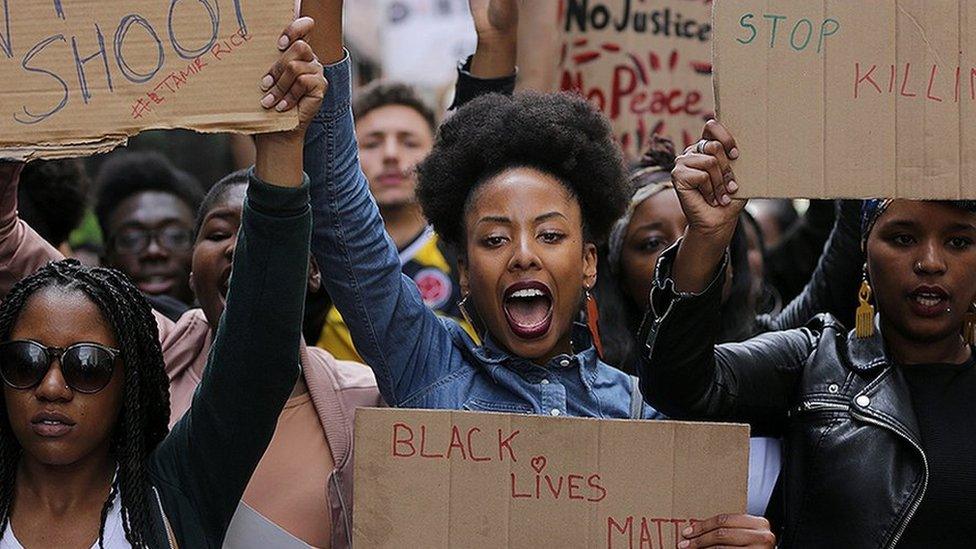
- Published6 July 2020
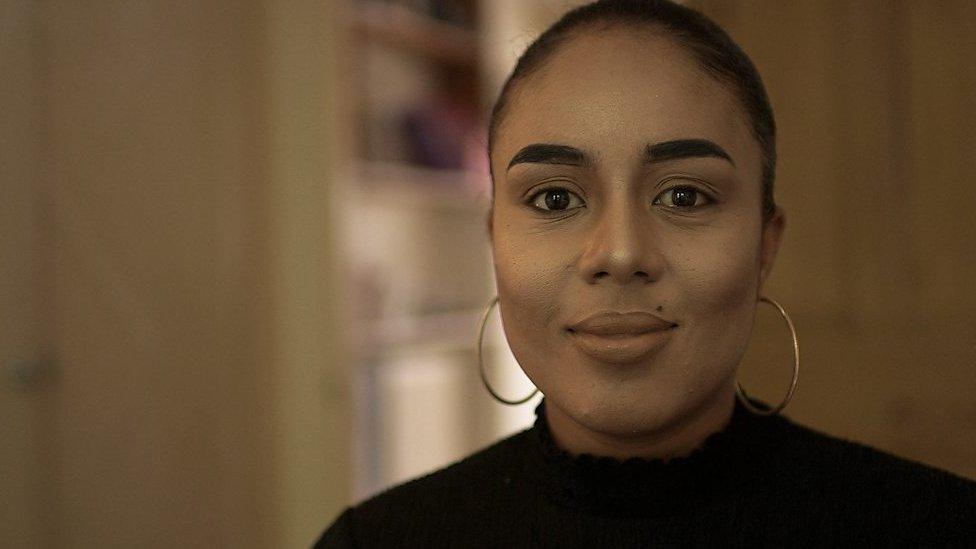
- Published22 July 2020
